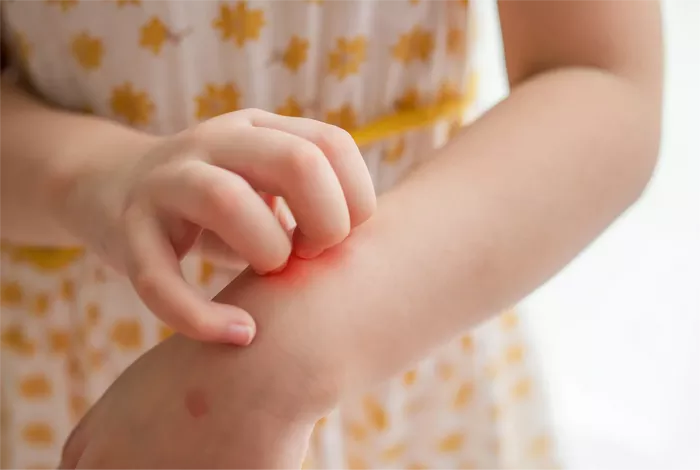Spontaneous chronic urticaria (SCU) is a perplexing and often frustrating condition characterized by the sudden and recurrent appearance of hives, itching, and swelling that lasts for at least six weeks. Unlike acute urticaria, which typically has a clear trigger and resolves within hours or days, SCU is defined by its persistence and lack of an identifiable cause. The hives can appear anywhere on the body, varying in size and shape, often causing significant discomfort. The itching associated with SCU can be intense, leading to sleep disturbances and impacting the quality of life.What sets spontaneous chronic urticaria apart from other types of urticaria is the absence of a known external trigger. While physical urticaria might be triggered by factors like pressure, cold, or sunlight, SCU occurs without any identifiable stimulus, making it particularly challenging to manage and treat.
SEE ASLO: How Long Does Drug-Induced Urticaria Last?
Potential Causes
Autoimmune Factors
One of the most widely accepted theories behind the cause of spontaneous chronic urticaria is an autoimmune response. In autoimmune diseases, the body’s immune system mistakenly attacks its own cells and tissues. In the case of SCU, this misguided immune response leads to the release of histamine and other chemicals from mast cells in the skin. This release causes the characteristic symptoms of hives, itching, and swelling. Studies have shown that a significant percentage of SCU patients have antibodies that target the body’s own tissues, particularly the receptors on mast cells that release histamine. This ongoing immune response keeps the condition active, leading to the chronic nature of the disease.
Environmental Triggers
Although SCU is characterized by the absence of a clear trigger, environmental factors can still play a role in exacerbating symptoms. Common allergens like food, medications, pollen, and even stress can contribute to flare-ups in individuals with SCU. For example, certain foods such as shellfish, nuts, or eggs are known to trigger hives in susceptible individuals. Medications like nonsteroidal anti-inflammatory drugs (NSAIDs) and antibiotics are also common culprits. Stress, often overlooked, can act as a significant trigger by increasing the body’s inflammatory response, leading to worsening of symptoms. However, it’s important to note that while these factors can aggravate SCU, they are not the root cause, and avoiding them may help reduce symptoms but not eliminate the condition.
Infections
In some cases, chronic urticaria can be linked to underlying infections. Both viral and bacterial infections have been implicated as potential causes of SCU. Viral infections such as hepatitis, Epstein-Barr virus, and cytomegalovirus have been associated with the development of chronic urticaria. Bacterial infections, particularly those caused by Helicobacter pylori, the bacterium responsible for stomach ulcers, have also been linked to SCU. The exact mechanism by which these infections lead to chronic urticaria is not fully understood, but it is believed that the immune system’s response to these infections may trigger or sustain the condition.
Underlying Medical Conditions
Spontaneous chronic urticaria can also be associated with underlying medical conditions, particularly thyroid disorders and other autoimmune diseases. Hashimoto’s thyroiditis, an autoimmune condition affecting the thyroid gland, is commonly linked to SCU. In such cases, treating the underlying thyroid disorder often leads to an improvement in urticaria symptoms. Additionally, other autoimmune conditions like lupus or rheumatoid arthritis have been observed in individuals with chronic urticaria, suggesting a broader autoimmune dysfunction at play. Despite these associations, it’s important to emphasize that in many cases of SCU, the exact cause remains unknown, which can be frustrating for both patients and healthcare providers.
Practical Advice and Resources
Managing the symptoms of spontaneous chronic urticaria can be challenging, but there are several strategies that can help alleviate discomfort and improve the quality of life.
Over-the-Counter Medications
One of the first lines of defense against SCU is the use of over-the-counter antihistamines. These medications work by blocking the effects of histamine, the chemical responsible for the symptoms of hives and itching. Non-sedating antihistamines, such as cetirizine or loratadine, are commonly recommended and can be taken daily to help control symptoms. In some cases, doctors may prescribe stronger antihistamines or additional medications like H2 blockers or leukotriene inhibitors to help manage more severe cases.
Cold Compresses
Applying cold compresses to the affected areas can provide immediate relief from itching and swelling. The cold temperature helps to reduce inflammation and numb the area, decreasing the urge to scratch. Cold compresses are a simple, non-invasive method that can be particularly useful during flare-ups.
Avoiding Triggers
Although SCU is defined by the lack of a clear trigger, it’s still important to identify and avoid potential aggravating factors. Keeping a symptom diary can help in identifying patterns or triggers that might worsen the condition. Once identified, avoiding these triggers, whether they are certain foods, medications, or stressful situations, can help reduce the frequency and severity of flare-ups.
Stress Management
Stress is a known trigger for many skin conditions, including urticaria. Incorporating stress management techniques like meditation, yoga, or deep breathing exercises can help in reducing stress levels, potentially minimizing flare-ups. Regular physical activity and ensuring adequate sleep are also important components of stress management.
Conclusion
Living with spontaneous chronic urticaria can be emotionally taxing, as the condition often disrupts daily life and can lead to feelings of frustration and isolation. It’s important to acknowledge these challenges and offer reassurance that with proper management, the condition is treatable. Encouraging open communication with healthcare providers, as well as seeking support from family, friends, or support groups, can make a significant difference in coping with the condition. Remember, although SCU can be persistent, many individuals find relief through a combination of treatments and lifestyle adjustments, leading to a fulfilling life.By understanding the potential causes of spontaneous chronic urticaria and adopting effective management strategies, individuals can take control of their condition and reduce its impact on their lives.
Related Topics:

























